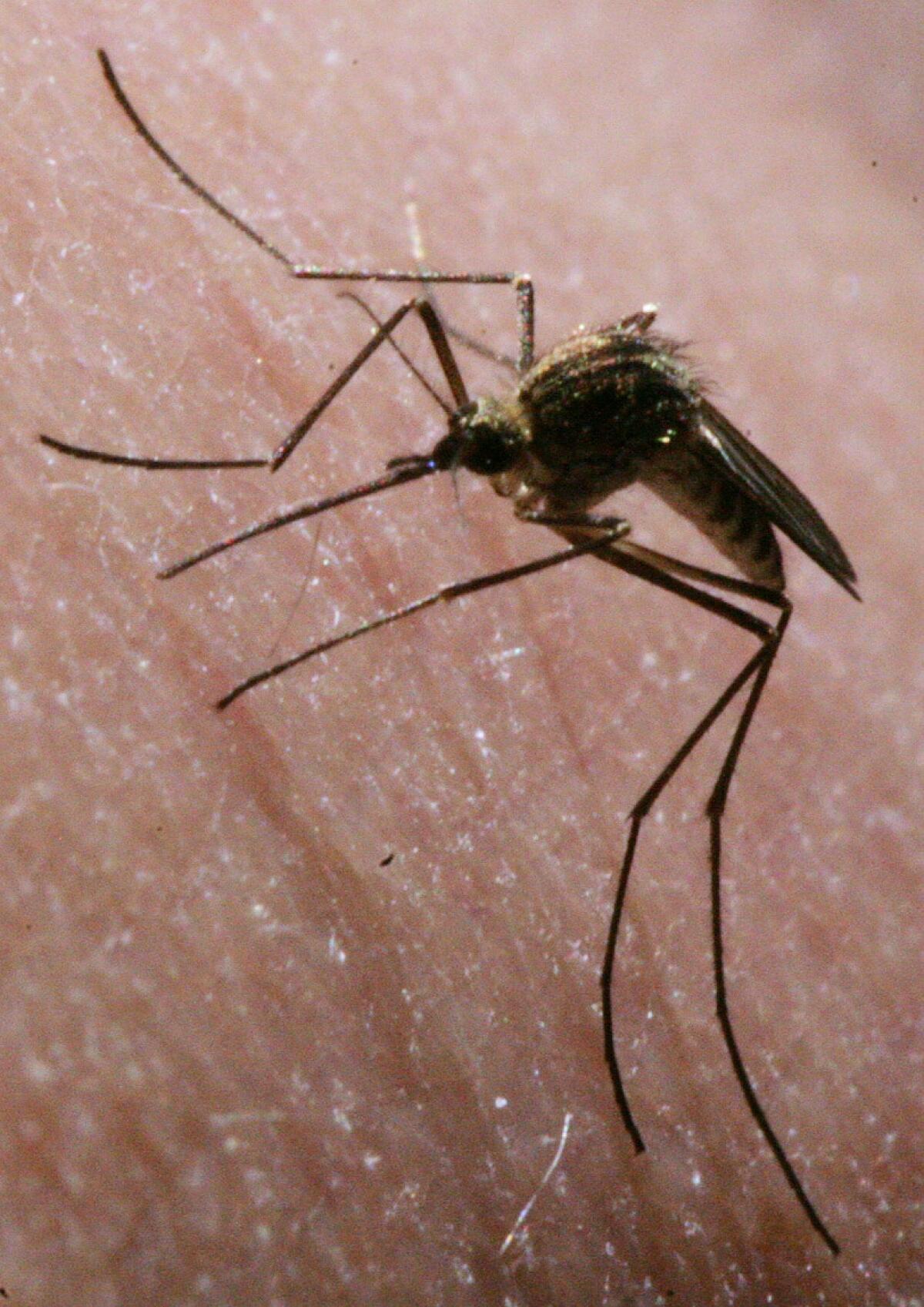West Nile Virus found in La Cañada Flintridge

A release issued by the city of La Cañada Flintridge on Friday said the sample was taken in the southeastern portion of the city as part of the district’s ongoing disease surveillance program.
Residents of La Cañada Flintridge are being advised to take measures to prevent mosquito bites, after the West Nile Virus was recently identified in a mosquito sample collected near the intersection of Foothill Boulevard and Oak Grove Drive.
Levy Sun, a spokesman for the Greater Los Angeles County Vector Control District, said the sample was collected on Aug. 6 as part of the district’s routine disease surveillance program and sent for testing at a UC Davis laboratory.
When the results came back Aug. 14 indicating at least one insect collected in the mosquito trap was infected with the virus, the district immediately contacted city officials and began posting warning signs in public spaces near the collection site.
Humans could be at risk for contracting the disease if they are bitten by an infected mosquito, though they cannot pass it on to other humans. So far this year, 36 cases of humans with the West Nile Virus across 10 counties have been identified by the California Department of Public Health. The state’s second fatality this year was reported Monday by the San Bernardino County Department of Public Health.
Sun said that although the infected sample came from one specific part of town, all residents should exercise caution.
“No matter where you are in La Cañada Flintridge, it’s safe to say West Nile Virus is actively circulating there,” he added. “Mosquitoes don’t really care about city boundaries — they’ll go wherever the blood is.”
One in five people infected with the virus typically see symptoms appear within five to 15 days, including fever, headache, nausea, skin rashes and body aches. One in 150 people infected will become severely ill, stated a release issued Friday by the city.
Still, human infections are relatively few compared to the number of infected mosquitoes collected by vector control districts throughout the state, data from the Public Health Department indicates. La Cañada’s positive sample was one of 13 new insect infections recorded in Los Angeles County last week alone.
Altogether, a total of 1,577 infected mosquitoes in 28 counties statewide have been identified this year, according to the website westnile.ca.gov. Peak mosquito season runs from late May or June through November, although activity is ongoing throughout the year.
Sun said La Cañada’s last recorded brush with an insect shown to be infected with West Nile Virus occurred in 2012.
Kevin Chun, director of administration, said the county’s Vector Control District regularly samples areas in town known for their likelihood of standing water, occasionally spraying to combat the spread of mosquitoes.
“We were contacted on Friday (and told) that one of their samples on the southeast side of town had a mosquito with West Nile Virus,” Chun said Monday. “It doesn’t mean mosquitoes with West Nile Virus are only on that side of town.”
Chun encouraged the use of protective clothing and mosquito repellent, especially at dawn and dusk, when mosquitoes are most active. He also advised residents to protect against infestation by eradicating all areas of standing or stagnant water, where the insects typically lay their eggs.
“It’s about educating the public and letting them know this is something to be aware of,” Chun said.
Additional resources are available through the Vector Control District’s website, www.glacvcd.org, or by calling (562) 944-9656. Sightings of dead birds can be reported to the State West Nile Hotline at (877) 968-2473. Anyone experiencing West Nile Virus-related symptoms is advised to seek immediate medical attention.
--
Sara Cardine, sara.cardine@latimes.com
Twitter: @SaraCardine
